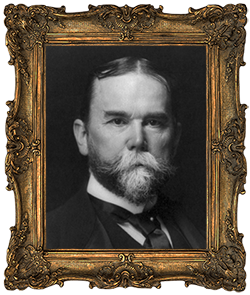Salem’s Pioneer of Women’s Athletics

By: Jeremy Elliott, Washington County Historian
The Stevens Museum received a generous and noteworthy collection of items and memorabilia, from the impressive collegiate coaching career of Terry Hall, donated by her sister, Judy Hall.
Some of the items in the acquisition included: a 1962 SHS/GAA Letter Sweater; 1984 SEC Women’s Championship Tournament Basketball; University of Kentucky Coach’s hardhat, satchel and playbook; 1986 200 Victory Club Award; 1991-92 Northstar Conference Coach of the Year Award; the official certificate naming, Terry Hall, as a Kentucky Colonel; the 1994 State of Kentucky Proclamation announcing Terry Hall, as the First Lady of Kentucky Basketball; 2013 Indiana State University All-Decade Team Award, 1960s; 2018 Lion Legacy Award; along with many photos, programs, schedules, news clippings and promotional posters from Terry’s illustrious career.
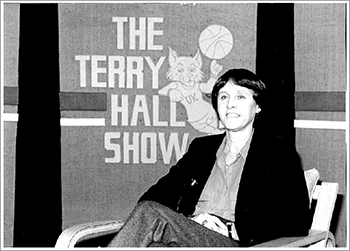 Salem native, Teresa A. “Terry” HallTeresa A. Hall, much better known as, “Terry,” was born in Salem, November 30, 1944, to Henry and Lucille (Strange) Hall, eventually becoming the eldest of three girls. She attended our local schools, having her first experience with the game of basketball in the 1950s, in the old junior high school gymnasium, on Water Street.
Salem native, Teresa A. “Terry” HallTeresa A. Hall, much better known as, “Terry,” was born in Salem, November 30, 1944, to Henry and Lucille (Strange) Hall, eventually becoming the eldest of three girls. She attended our local schools, having her first experience with the game of basketball in the 1950s, in the old junior high school gymnasium, on Water Street.
In 1976, she told the Louisville Times how she became devoted to basketball: “I picked up an old, rubber-balloon ball from the floor and shot it from the corner. The ball went in. I thought there was nothing to this game. And I have been hooked on it ever since.”
She entered the Salem High School, on North Harrison Street, the year after it opened, and joined the Girls Athletic Association, or GAA. The GAA was an after school recreational club for girls that gave them the chance to participate in organized athletics, not readily available or offered to females prior to 1972. The clubs, which began springing up as early as 1900, generally met once or twice a week and cycled through a variety of seasonal sports. They were predominantly intramural until the 70s.
In the earliest years, permission to exist was the extent of support schools gave their GAAs. Girls frequently had to fund the programs on their own. Schools would not hire coaches, instead relying on faculty sponsors, who they could pay less. GAAs were also given little to no access to facilities and rules changes were implemented for many sports. This was done to slow down the pace of the game because there was a real concern that school administrators would cancel GAA programs if girls were thought to be exerting themselves too much.
Many of the early Indiana Girls Athletic Associations (GAAs) centered on basketball, and not just because it’s Indiana, but it didn’t require much in the way of equipment and uniforms. So, it was a relatively accessible and affordable sport for girls. Other sports prevalent in the Salem GAA, were softball, volleyball, tumbling and bowling.
But there were no official sports teams for girls, it would literally take an Act of Congress, in 1972, to change the position of educational institutions, all across the country, from their stance against female athletics.
Terry Continues her Education and Passion for Athletics at Indiana State
Nevertheless, Terry excelled in the GAA, during her years at the Salem High School and claimed the GAA Outstanding Member Award, her senior year, in 1962. After graduation, she entered Indiana State University, in the fall, to obtain a degree in Health, Physical Education, and Recreation.
She knew prior to graduation that she loved athletics, and if she wanted to continue to be allowed to participate, she would have to enter the field.
When she arrived on campus, she was ecstatic to discover a much more enlightened state for female athletes, with a myriad of organized team sports for women. Although still not officially recognized by the NCAA governing body, the girls teams did play regular schedules and seasons against other schools in their conference, or schools geographically nearby. Largely these contest were referred to as, ‘Intercollegiate’ play.
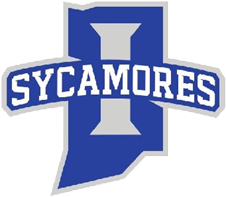 In a 1975 interview, Terry said,
In a 1975 interview, Terry said,
“I went crazy when I went to college. Indiana State had a tremendous female sports program, and I tried to play everything I could.”
And she did, initially focusing primarily on tennis, basketball, volleyball, badminton and field hockey. Somewhat surprisingly, Terry still had not taken the class offered over basketball when her younger sister, Judy, showed up on the ISU campus two years later. Judy’s interest in participating in the class encouraged Terry to join her.
On the hardwood, Terry’s natural athleticism, decisive court vision, and strategic mind bedazzled most everyone.
Recently, Judy Hall recalled:
“Early on, the coach picked my sister and another girl, as opposing captains for scrimmage squads. Now, I wasn’t nearly as athletically talented as my sister, but we had been playing sports together for years, so Terry picked me for her team. I wasn’t great at a lot, but I sure knew how to set up my sister! Almost immediately, we were racing around the half-court, (which girls were still ridiculously limited to by national requirements), I’d set her up and she would score, I’d assist and she would score, over and over we did this until we were just annihilating the other team. Eventually the coach blew the whistle, halting the contest, and said, “Ok so it’s rather obvious that we can never again allow the Hall sisters to play on the same team, it’s completely unfair!”
In 1965, Terry was presented the I-Woman Award, for the ISU female athlete excelling in the widest variety of sports. In her senior year, she received the Hillman Award, for being the best female athlete on the ISU campus.
Terry begins a Career in Physical Education
She received her bachelor’s degree, in 1966, and after a brief stint teaching elementary school, landed the position of Physical Education Instructor of West Washington High School.
In the fall of 1969, Terry accepted the same position, with Butler High School, in Louisville. Here, she got actively involved in the Amateur Athletic Union (AAU) adult sports offerings, primarily basketball and softball. This 1888 organization, formed with the progressive motto, “Sports for all, forever,” and brought tremendous satisfaction to Terry’s overwhelming natural desire for active competition.
She took those experiences with her to Butler High, and immediately recruited and organized a girl’s basketball team, thus beginning her coaching career. During her five year tenure, she compiled a 68-32 record and won 2 Jefferson County championships.
While coaching at Butler High, the women’s liberation movement swept across the nation, forcing male-driven society to reexamine its attitude towards women, including female athletes. One of the culminating factors, resulting from the movement, was the ratification of Title IX, in 1972. Title IX was an educational amendment, passed by Congress, that attempted to put an end to discrimination among females in educational systems across the nation.
The educational amendment stated: “No person in the United States shall, on the basis of sex, be excluded from participation in, be denied the benefits of, or be subjected to discrimination under any education program or activity receiving Federal financial assistance.”
Title IX Provides Opportunities for Female Athletes
Most commonly, Title IX is known for its reforms in college level athletics. Prior to the amendment, only 1 in 27 girls participated in high school sports and only 32,000 played intercollegiate sports in the United States. The 1972 reforms would begin to change all of that, and would ultimately open doors for Terry Hall that were previously closed and locked tight.
Terry would leave Butler High School, to obtain her master’s degree in Physical Education, at Eastern Kentucky University. While she was attending, the EKU women’s basketball coach quit her position, so Terry applied for the opening. Entering an agreement, to only coach one year, she was named the interim coach for the team’s 1974-75 season.
She would lead the team to a respectable 14-6 record and go on to win the Kentucky Women’s Intercollegiate Conference tournament, beating the University of Kentucky, in the championship game.
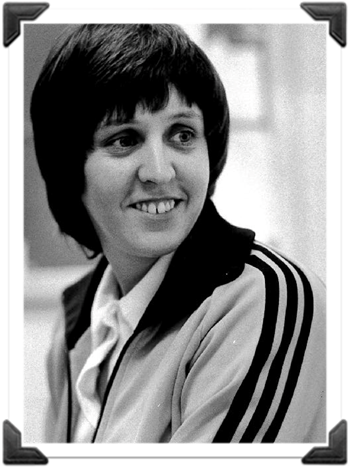 After receiving her degree, she returned to Louisville and was hired as the University of Louisville’s Women’s Basketball Coach, but only on a part-time basis. However, when she landed a full-time physical education teaching position, with the Jefferson County, Kentucky school system, U of L officials decided it was time to hire a full-time women’s coach for basketball and tennis. They offered that opportunity to Terry, (in the women’s team’s first year of NCAA recognition), and she readily accepted.
After receiving her degree, she returned to Louisville and was hired as the University of Louisville’s Women’s Basketball Coach, but only on a part-time basis. However, when she landed a full-time physical education teaching position, with the Jefferson County, Kentucky school system, U of L officials decided it was time to hire a full-time women’s coach for basketball and tennis. They offered that opportunity to Terry, (in the women’s team’s first year of NCAA recognition), and she readily accepted.
She became the first full-time head coach of the Louisville Cardinals women’s basketball team. At the same time, she had the advantageous benefit of the university offering the equivalent of a full scholarship, to female athletes, for the first time in their school’s history; including five on the basketball team. (An obvious result of Title IX.)
Terry was witnessing and living through a complete transition of female athletics, that was by no means lost on her. In 1975, she reflected:
“Overall the total attitude has changed completely. Society has now accepted the female athlete. When I was playing this wasn’t so.”
After finishing fourth, in the intercollegiate conference tourney, her first year, Terry revealed her impassioned determination, to reporters, prior to the start of the 1976 season. She clearly stated her objectives:
“I want to be the state powerhouse. Period. That’s my goal. We’ll work one step at a time. First, I want to be number one in the state, then number one in the region, but right now everyone is working to knock off Eastern Kentucky.”
Terry remained at U of L for five years, posting a 79-54 record and leading the Lady Cards to a Metro Conference Championship, in her final season, in 1980. However, when the traditional Mecca of Kentucky basketball called, Terry answered, and moved to Lexington, to accept the women’s head coaching job at the University of Kentucky.
Terry Hired as Coach of the University of Kentucky Lady Kats
In 1980, the UK women’s basketball team finished the year ranked #14 in the nation, but their coach resigned at the season’s end. Their athletic department received over 150 applicants for the position. Terry recalled her reasoning for applying: “When the UK job became vacant, I thought that it would be a golden opportunity for me or anyone to better themselves in this business.” She would ultimately win out over all the other candidates and was introduced as the Lady Kats coach for the 1980-81 season.
Prior to departing for Lexington, Terry had already settled on her vision for the UK women’s team, telling a Louisville reporter:
“I think Kentucky will be the type of women’s basketball program that its men’s program already is, in a few years. It already has the talent and the means by which to succeed. I think the only way for it to go is up!”
Initially, those premonitions weren’t wrong, as the Lady Kats came roaring out of the gates, in the early years of Terry’s tenure and created, what a Louisville newspaper called, “A women’s basketball revolution, in Central Kentucky.” Veterans, returning from the season before, along with standout sophomores, Valerie Still, Lea Wise, and Patty Jo Hedges, led the Lady Kats to a 25-6 overall season record. This included particularly thrilling wins for Terry, over both Indiana & her alma mater, Indiana State, along with defeating Eastern Kentucky and handily beating their rival, her previous team, the Lady Cards, twice.
 Association for Intercollegiate Athletics for Women (AIAW) Since it irrationally took the NCAA governing body 10 years from Title IX, to establish a women’s basketball championship, the Lady Kats entered the 1981 Association for Intercollegiate Athletics for Women (AIAW) Championship Tournament. They advanced to the sweet sixteen, before being eliminated by eventual tournament champions, the Maryland Terrapins, in an intensely exciting one point contest.
Association for Intercollegiate Athletics for Women (AIAW) Since it irrationally took the NCAA governing body 10 years from Title IX, to establish a women’s basketball championship, the Lady Kats entered the 1981 Association for Intercollegiate Athletics for Women (AIAW) Championship Tournament. They advanced to the sweet sixteen, before being eliminated by eventual tournament champions, the Maryland Terrapins, in an intensely exciting one point contest.
The University of Kentucky women’s team would finish the season ranked 11th nationally.
The enthusiastic momentum for Terry, and her Kats, continued into her second year on the job. They kept up their campaign of courting and progressing their fanbase, which was showing significant results. After a somewhat disappointing 2-1 start at the Detroit Classic, the UK women would go on a roll, winning 10 of their next 11 games. They entered the 1982 SEC Tournament, held in Lexington, with a 19-7 record, and All-American Center, Valarie Still, finished the season second in the nation, for both rebounding and scoring.
Advancing to the final four, the Lady Kats cruised past a nationally ranked Louisiana State squad, 85-71, to earn a birth in the SEC Championship game. On February 28, 1982, they squared off against legendary, Hall of Fame Coach, Pat Summit, and her powerhouse Tennessee Lady Volunteers. Up to this point, Terry was 0-4 against Summit and the Vols, so the Lady Kats entered the contest as underdogs.
Terry Hall had her team ready for this game, she knew this could be their statement game, heading into the first ever NCAA Women’s Basketball Tournament. Her Kats shot 59.2% from the field, 80% from the foul line and behind the remarkably solid play of their star center, Still, who racked up 33 points in the contest, defeated the Volunteers, 80-74. Valarie Still was named the tournament MVP.
Today, it remains the only SEC women’s basketball title the University of Kentucky has ever won.
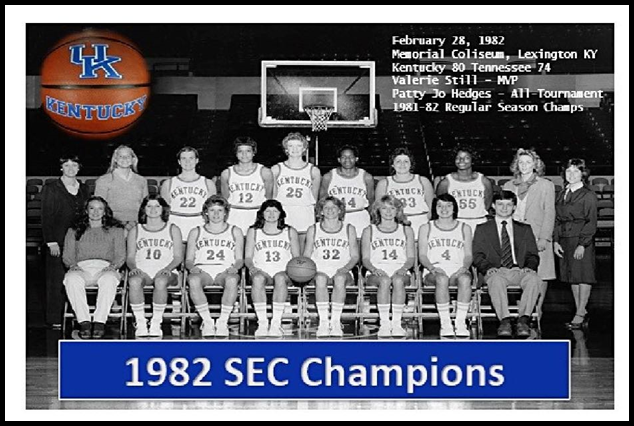
In the first two rounds of the 1982 NCAA Championship Tournament, Terry and the Lady Kats, would have the benefit of the games being played in Lexington. After knocking off Illinois, 88-80, in their first contest, UK was able to avenge a regular season loss against South Carolina, in the Sweet Sixteen. Advancing to the Final Eight, the second-seeded Kats faced the tall order of traveling to Ruston, Louisiana, to encounter the tournament’s heavy favorite, #1 ranked, (32-1) Louisiana Tech, on their home-court.
The Lady Techsters had studied the UK squad well. Their defense smothered the Lady Kats offense, the hometown crowd was raucous, and the agony of defeat had settled in by the waning minutes of the 82-60 loss. Louisiana Tech would cruise the rest of the way, to become the first NCAA Women’s Champions.
Coach Hall and the Lady Kats Invited to Compete Internationally
In July, of 1982, Coach Hall and her Lady Kats were invited to participate in an exhibition tournament in Japan, where they squared off against several Japanese City and National Teams, who were in the early stages of preparations for the 1984 Summer Olympics.
This may well have been the first time a U.S. women’s collegiate basketball squad traveled overseas for international play, but due to lack of historical information (particularly concerning the women’s game), I’ve been unable to accurately determine.
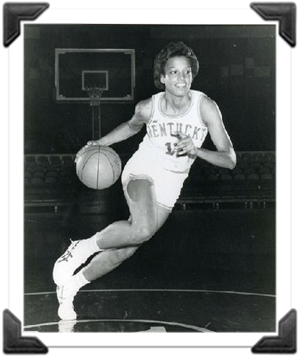 Valerie Still - Three-time All-AmericanRegardless, as Terry’s three-time All-American, Valerie Still, recently relayed to me;
Valerie Still - Three-time All-AmericanRegardless, as Terry’s three-time All-American, Valerie Still, recently relayed to me;
“It was a first for the university, and Coach Hall was particularly excited for the opportunity.” She recalled, “those trips to Japan were exciting because this was the first time I had the chance to travel and play in another country, with my UK team...and the Japanese treated us like superstars. I enjoyed Japan right away and made friends with many of the Japanese players we played against. Those are memories we will never forget. Japanese culture is much different than American culture and as young college-aged women, we enjoyed every moment.”
In the tournament final, the Lady Kats defeated the Japan National A Team, in impressive fashion, 77-59.
The Terry Hall Show Premiers and Breaks New Ground for Female Sports
With the core of their star players returning the following season, the levels of excitement and expectation reached a fever pitch previously unrecognized by the program. Undoubtedly, the girls, and their coach, had created a buzz about the town of Lexington, and not simply through their play. Their popularity and marketability was boosted through the weekly broadcast of “The Terry Hall Show,” shown locally through Lexington’s Channel 36. (Pictured at the top of the story). The scope and impact this telecast managed, over the young girls of the Central Kentucky region, could easily be lost on today’s younger generations, but in that time era, anything about girls basketball on television was a brand new thing, and commanded some notice. The Lady Kats successes magnified that attention.
In addition to that, the athletes and coaches maintained a regular regime of public promotional work, supporting efforts to grow the fanbase and revenue for the university.
As, Valerie Still, graciously shared with me in a recent conversation:
“When I arrived on campus, in 1979, the women’s basketball team had only been reestablished for five years, so it wasn’t always all about winning for us. It was about proving we belonged! Fighting for women’s athletic equality, and trying to garner attention in the shadow of the legendary men’s program.”
In her esteemed career at the university,Valerie, would go on to smash and obliterate any preconceived stereotypes about women athletes, and cement her name among the elite legends of UK.
Almost 30 years prior, Coach Hall was echoing her star player’s sentiments in a newspaper interview:
“We’ve come a long way, but it has taken a lot of years. First, we had to overcome the social aspect. Convincing moms and dads that it wasn’t unfeminine to play basketball. Now, I think they’re convinced and see it as a way for their daughters, as well as their sons, to earn a college scholarship. One thing we try to stress is that we have nice-looking feminine kids, and we try to be conscious of being role models. People need to know they can look feminine, they can be ladies, and good basketball players too. So now, I’m starting to see kids who want to be like Val and Lea and PJ.”
*As the author, born in 1970, growing up in the midst of Title IX results, and having dear friends, in my life, who were star female athletes, as well as being the father of a girl; it is difficult for me to reconcile the archaic rhetoric that was occurring so recently in our past. Surely, the reader can recognize my last story was about a girl fighting for equality, 120 years prior to this one. Good grief. I’ll end the digression.
The advancing momentum of all that success, support, attention, and pressure led them into the 1982-83 season. Kentucky’s dynamic trio of Valerie Still, with guards, Wise and Hedges, were now all seniors and captaining the team together.
New Milestone Reached for Valerie Still and the Lady Kats
The buzz around them was highly charged, as they launched into an explosive 3-0 start, with three home games against Ohio colleges. In the final game of that stretch, on December 5th, against the University of Miami (OH), the excitement would rise to a crescendo for an unexpected female accomplishment. The game was halted by officials after All-Star Center, Valerie Still, scored her 2,139th career point, passing Dan Issel as the University of Kentucky’s all-time scoring leader, for men or women. The university presented her with a special plaque and commemorative ball, while photos were taken, before resuming the contest.
Next, Terry led her team into Bloomington and achieved a convincing victory over the rival Hoosier women, 85-72. They streaked out to an impressive 8-0 record, before unexpectedly stumbling, against unranked Memphis State. Then they rattled off another eight straight wins, including three incredible performances where they scored over 100 points, and another victory over their rival, the Lady Cards.
After eking out an overtime victory over Georgia, and downing South Carolina, they were enjoying some of the highest national rankings the team had ever experienced, as they entered the intense spotlight of a contest against, #4 ranked Old Dominion, on February 5, 1983.
A record crowd of 10,667 people poured into Memorial Coliseum, to witness the Lady Kats ground-breaking, 80-66 upset over ODU, and their 6 foot 8 inch, star center, future Hall of Fame legend, Anne Donovan. (Who sadly passed away in 2018).
They would win four more, but drop two, tough, in-conference losses, coming down the stretch to their final regular season game; ranked 8th in the nation. That game was in Knoxville, Tennessee, against their biggest SEC rivals, the Volunteers.
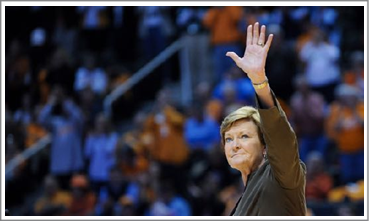 Basketball Icon - Pat SummittDuring Terry’s coaching tenure, she frequently invited friends and family members to attend her games, and often times would take her mother, Lucille, and/or her youngest sister, Mardee (Hall) McNay. Just a short while ago, in a telephone conversation with Mardee, she explained to me about the first time in her life when she was star-struck:
Basketball Icon - Pat SummittDuring Terry’s coaching tenure, she frequently invited friends and family members to attend her games, and often times would take her mother, Lucille, and/or her youngest sister, Mardee (Hall) McNay. Just a short while ago, in a telephone conversation with Mardee, she explained to me about the first time in her life when she was star-struck:
“We were staying in a hotel, (in Knoxville), when someone knocked at the door. I looked out to see who it was,…..it was Pat Summit. I turned to Terry and exclaimed, Oh my God! Terry!? Are you really friends with Pat Summit?!? Terry, kind of rolling her eyes, said sarcastically, “Oh yes, Mardee, we’re All friends.” But Jeremy, she really was very close friends with Pat and cherished the relationship.”
The admiration for Pat Summit (1952-2016) goes without explanation.
Terry’s Kats managed the not-so-frequent task of defeating the Lady Vols, 81-69, in their house. Delivering Tennessee’s only conference loss of the season. A game that Valerie Still said, was one of the most extraordinary victories of her collegiate career and had them all very excited for the NCAA Tournament.
All of that excitement and hype surrounding the 23-5 Lady Kats, may have provided enough distractions, to cause their stumble in the opening round of the SEC Tournament. As they entered Knoxville, to defend their SEC title against 24-8 Auburn, the team did not perform to expectations and fell 85-70.
Lady Kats Upended in NCAA Tournament Play
As is frequently the case with NCAA tournament play, there are often times questionable early round matchups, where one team seems to have a serious advantage, simply based on where the game is held. The 1983 tournament pitted the #3 seeded Lady Kats against the #6 seeded, Big Ten Champions, and UK rivals, the Indiana Hoosiers, at Notre Dame.
The overwhelmingly crimson and cream favored crowd, helped to spur the Lady Hoosiers into an upset 87-76 victory, avenging their early season home loss. Terry Hall and the women of UK were sent back to Lexington, dejected.
Her sister Mardee attempted to explain to me:
“Oh Jeremy, no one was as devastated by that team’s short-comings as Terry was. It was like she carried around all of those girls hopes, dreams, and aspirations, as well as her own, and when they didn’t succeed, saying Terry was disappointed or disheartened isn’t adequate.”
Replacing that dynamic trio of players from the 1983 team, after they graduated, would be a constant recruiting struggle for Terry’s UK coaching team. Even though her incredible coaching talent never allowed the program to drop below a .500 winning percentage, in her time at UK, finding the same successes would remain, just out of reach.
After going 18-10 in the 1985-86 season, they were seeded as a #7 in the NCAA Championship Tournament, but suffered a first-round upset to #10 Drake. By this point, the staggering pressure to win, from the university’s boosters, alumni, and administrators, was beginning to wear Terry down.
When her 1986-87 team went 17-11, and failed to receive a bid in the championship tournament, Terry was forced out of the UK head coaching position. Her record at UK stood at 138-66, good for the winningest women’s coach in the program’s history. (And a record that would stand until 2013.)
Terry Steps away from Coaching
At this point, Terry decided to take a break from the high pressures of coaching. She stayed in Lexington and became a stock broker. She also opened her own collegiate basketball scouting service and remained active in both, for the next three years.
Terry Welcomes a New Opportunity at Wright State University
 However, in 1990, Wright State University, in Ohio, decided it was going to transition from the NCAA Division II to Division I, for the women’s basketball team. They knew a successful transition would require an experienced, proven coach, one that would bring recognition and vision for their little school’s program. Someone with the grit, the determination, and the strategy to start with very little, and build it into a competitive, respectable D-I program.
However, in 1990, Wright State University, in Ohio, decided it was going to transition from the NCAA Division II to Division I, for the women’s basketball team. They knew a successful transition would require an experienced, proven coach, one that would bring recognition and vision for their little school’s program. Someone with the grit, the determination, and the strategy to start with very little, and build it into a competitive, respectable D-I program.
The Wright State athletic department contacted Terry Hall, to gauge her interest. Ultimately, her love of the game, her desire to help mold the lives of young adults, and her inherent fire for competition led her to accept the job. She moved to Dayton, Ohio to be the head coach of the Lady Raiders, for the 1990-91 season.
That first season was a rough one, but the team continued to show consistent improvements, despite their lack-luster 4-24 finishing effort. Terry’s own mark of basketball culture at Wright State, started paying off by the 1992-93 season, as the Lady Raiders improved to a 9-18 record. The following season brought additional signs that she had the program headed in the direction the university had hoped for, as her team improved to a 12-15 overall record.
Terry begins a New Personal Battle
Regrettably, in September of 1993, prior to the start of the basketball season, Terry was diagnosed with ovarian cancer. For the next three years, Terry would battle with everything she had to defeat the disease. Undergoing three surgeries and countless rounds of chemotherapy, all while still coaching the Wright State team, to the upmost of her ailing abilities. She turned practices and pregame duties over to her assistant coach, so she could preserve her energy for the games. But, her desires to turn the program into a winning one, just wouldn’t allow her to walk away.
In a 1994 interview with the Dayton Daily News, after Wright State had just suffered an agonizing loss to their cross-town rivals, the Dayton Flyers, 62-61, she revealed:
“I tried to downplay the severity of it all…..especially with my team. But eventually they could see the struggle. They could tell it was more serious than I had said. It’s gotten so I’m pretty open about all of this with the team now.” As Terry was departing the arena that night she made a departing comment to the same reporter: “I’ll be worn out tonight. That’s the way it is after games now. Especially tonight…..when I think about the girls losing. You always feel a little better when you walk out of a gym a winner.”
The reporter remarked in conclusion, “you knew while the cancer and chemo could take her strength, it can’t steal her identity. She’s a coach.”
Coach Hall Designated Kentucky’s First Lady of Basketball
On April 25, 1994, the Senate of the Commonwealth of Kentucky, in a special session, bestowed upon Coach Terry Hall, the title of ‘Kentucky’s First Lady of Basketball’, in an official proclamation. They celebrated and honored her for all of her work at EKU, U of L, and UK, for her 138-66 record at UK, and her 7 top 20 rankings
After some progress towards full remission, with a bone-marrow transplant, the cancer returned, forcing Coach Hall to request a two month leave of absence from Wright State, on January 21, 1996. When those two months expired, without any real progress from her treatments, she submitted her resignation. Once her resignation was accepted, she again spoke with the Dayton Daily News, stating:
“It was a hard decision because coaching has been my whole life, but the time has come where I need all my energy in trying to beat this. It just got to the point where it wasn’t fair to the program, to the kids, to me and to the other coaches. Everyone at the university has been extremely supportive through this whole process.”
When asked how her team responded to the news, she said:
“They just cried and cried. On one hand, they were extremely upset. On the other hand, they understood perfectly what I was saying to them.”
Terry's Jouney comes to an End in 1997
Terry returned home to Indiana to enjoy time with those closest to her. She lost her long, agonizing fight against the disease, on July 14, 1997, at the Clark Memorial Hospital.
The following summary of a tribute, from a colleague, was published in the Dayton Daily News, shortly thereafter, and can put Terry’s fight in better perspective than I can:
“I knew Terry Hall as a coach, a golfer, and the most competitive person I have ever met. After she discovered she had ovarian cancer, her battle against the disease was as intense as any strategic battle you will see when a coach tries every offense, every defense, and uses all the players at their disposal to win the biggest game of her career. She was as courageous as any person I have ever known or read about.
This (last) time around, she wasn’t fighting for her life, she was celebrating it and reveling in it. She experienced and cherished the activities and friends she loved best in her last months. If she had periods of depression or down-times, she didn’t show it. Never did I hear or witness self-pity. She was an inspiration to me. If I ever have to face death like Ms. Hall did, I hope I can turn my back to it as boldly and enjoy life to the end just as fully as she did…”
-Norma Dycus, Assistant Athletic Director, Sinclair Community College
Terry’s best known player, UK’s Valerie Still, communicated the following to me, about her coach’s passing:
“In 1994, after I returned to the USA from playing in Italy, the local NBC affiliate hired me as a special reporter for a segment called "Still On The Go." I was able to interview former UK athletes and coaches and in the summer I interviewed Terry, shortly after she had been diagnosed with cancer and had finished the first 6 rounds of chemotherapy.
We hadn't seen each other since college and it was emotional for us. One of the things she told me remains with me today, she said "Valerie, when you're diagnosed with cancer you live with that every day...it never leaves you. But each morning when I wake up I thank God for another day." She was wiping away tears as she said that. In all my days of having Terry as a coach, I had never seen her cry. After the interview was over, we had a wonderful conversation. She expressed to me how important each moment of our lives are and we shouldn't waste one minute. I was so touched by her that day, more so than any advice or coaching she gave me.
For the last few years I have been asking UK to have a reunion/ring celebration for this 1982 SEC Championship team...now that I've finally done the preparation, a pandemic has hit the world and we are stuck in limbo and we may have to have a virtual reunion this year. Remembering her words make me feel I should have done this a few years ago...we never know what's going to happen in the future so it's so important to live fully in the moment we have today and to be thankful for this moment. Two years after this interview, in 1996, I was given the wonderful opportunity to play in the American Basketball League (ABL), it was a new women's pro league in the states. My childhood dream had finally come true and I remember Terry coming to watch me play in Columbus Ohio. We went out after the game to enjoy dinner and some time together.
By March 1997, she was resigned from coaching because she was so ill. I found out and decided to get each player from the ABL (8 teams) to autograph a basketball for her. We won the championship and when I found out that she was in the hospital, I went to visit her to give her the ball. She was in the final stage of her fight against cancer. I will never forget those moments. I got the news of her passing shortly after my visit.”
After she passed, Teresa Hall was brought home to Salem, her funeral was conducted at the Dawalt Funeral Home. Afterwards friends, family & colleagues accompanied her to the Crown Hill Cemetery, where she was interred, on July 17, 1997.
Terry Hall was a True Pioneer of Women’s Athletics
In more than 20 years of collegiate coaching, Terry amassed 292 victories, just 8 shy of 300. She was a true pioneer of women’s athletics, one of those brave women, who despite popular opinion against it, insisted on playing sports, regardless of the female stigma attached. Her deep-seeded, competitive nature demanded it. She was there to witness the first signs of acceptance, the passing of powerful legislation in their support, and the genesis of women’s athletics as we know them today. Terry participated, persuaded, and helped to instruct and form the skeleton of women’s sports in our country, maintaining an indispensable and involved role from the 1960s to the 1990s.
Undoubtedly, her indelible impact is still largely unknown and unrecorded, but nevertheless resounding throughout women’s sports today.
Final Thoughts from Terry's Family
When discussing Terry with her family, they immediately make mention of her unwavering, relentless determination to succeed, her courage, her truly independent sense of herself and her goals, her true belief in the female athlete, her deep love for sports (in general) and for coaching. Helping to guide young people, on their way to a higher education and adulthood, was extremely rewarding for her. Terry believed in equality, and fought for female athletes to enjoy the same opportunities as the males. She was determined to see it achieved and was solid in character.
But in the end, as her sister Judy, reminds me:
“you know to us, she wasn’t Coach Hall, she was Terry; a daughter, a sister, and a really cool aunt. We all loved her dearly and miss her terribly.”
Ultimately, that is probably the finest thing to be said in her memory. Because when you strip everything else away, Terry was a remarkable human being, who made significant contributions to her family, friends, peers and colleagues, community, education, female athletics and her gender.
We at the historical society, exalt and celebrate the life and legacy of our native daughter, Teresa A. Hall, for everything she was, did, and became. A more positive role model, for girls or aspiring young female athletes from this county, could not be found. A better representative of our community likewise, would be difficult to replicate.
We sincerely hope you will stop by the museum to see Terry’s new display and reflect on her meaningful life.
- Jeremy Elliot
GoFundMe Page for the 1982 University of Kentucky, SEC Women’s Basketball Championship Team
*While conducting research for this article, I stumbled across a GoFundMe page connected to Terry Hall, and immediately took interest. Valerie Still started the campaign, to raise the funding needed to award the entire 1982 University of Kentucky, SEC Women’s Basketball Championship team the rings they were never awarded.
She expressed her desire to present Coach Hall’s family with her ring, so naturally I volunteered to help this worthy effort.
Click here to visit the GoFundMe Campaign for additional information


